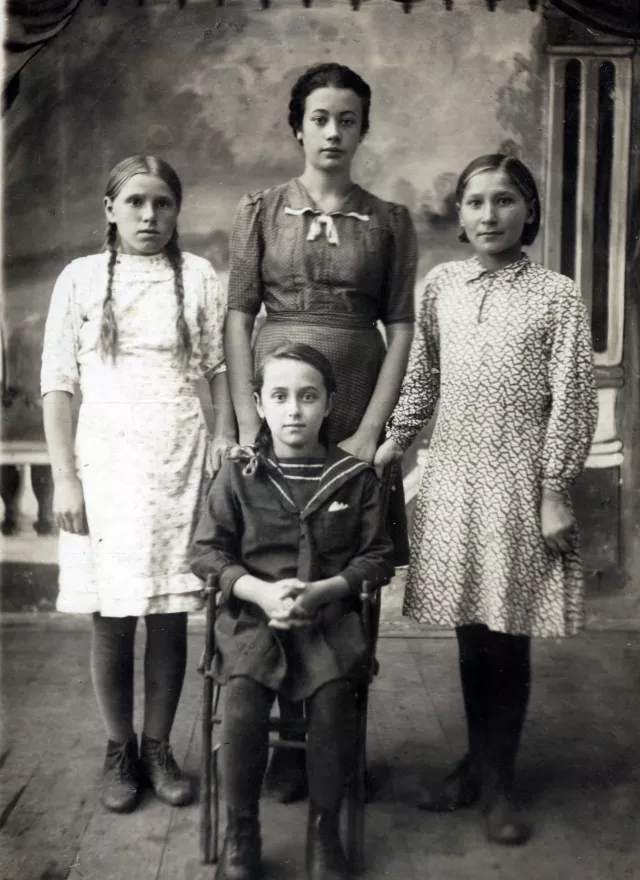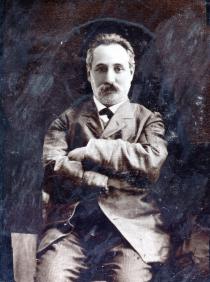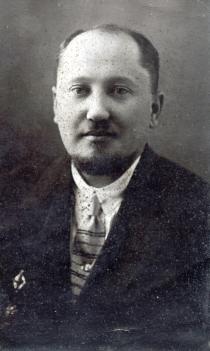Iyah Dziekovskaya and her sister Inna Dziekovskaya with friends
This is me, Iyah Dziekovskaya (sitting in the center) and my sister Inna Dziekovskaya (standing behind me) with our friends. This photo was taken in Cherkessk in 1941. This photograph was taken in evacuation in autumn. We were far from home, but I am wearing my favorite sailor's outfit associated with my childhood memories of our peaceful life. Our landlords' daughter and her friend are with us. I don't remember their names.
The Great Patriotic War began when I was under 10 years of age. In August 1941our family decided to evacuated from Dnepropetrovsk. Our train was the last one to cross the railroad bridge across the Dnieper. It was destroyed by bombs and nobody could leave the town after us.
I have fragmentary memories about the evacuation. I remember that we were in a freight carriage and I felt very sleepy. There was a man sitting beside me and my head was falling on his shoulder. It made him uncomfortable and he was trying to move away and I was murmuring in my sleep: 'Why fidgeting? Sit quiet!' We reached Cherkessk in the Caucasus. I studied in the 2nd form there and I remember that I became a pioneer in Cherkessk. My father got an invitation to go to work as a forensic doctor, a morbid anatomist, in Turkmenia. We went to Makhachkala and from there took a boat to Krasnovodsk across the Caspian Sea. When our boat arrived at Krasnovodsk I remember that we all felt awfully cold. There was a girl walking in the street wearing some light clothes. So it wasn't probably that cold. We were probably starved. I also remember finding three onions in the ground near the harbor. We enjoyed eating them even without bread - they were not bitter at all. From Krasnovodsk we went to Ashgabat where we stayed few days with chief forensic expert of Turkmenia. This was a nice Russian family. From Ashgabat we went to Charjou [2 750 km from Dnepropetrovsk] where my father was to take u0p his job. It was a small town. Most of its residents lived in small cottages. We rented a room in one house. There was a long corridor leading to the room. The militia office gave my father a vehicle to get there. The landlady was horrified to see that we came with militia escort. She decided they were going to force her to accept us as permanent residents. Ewe lived in this room until 1944.

















